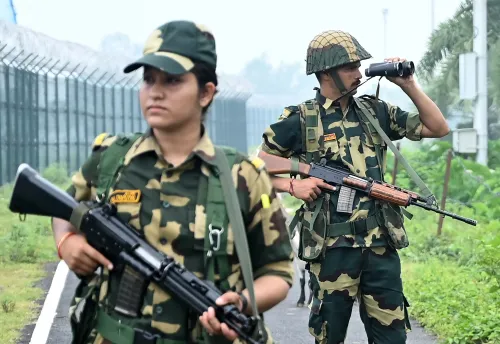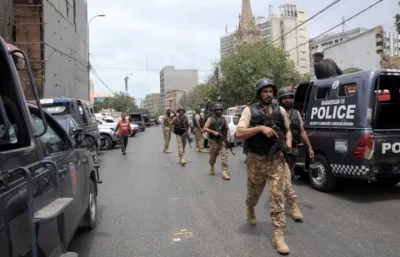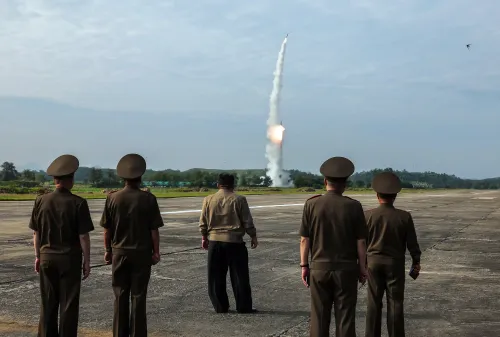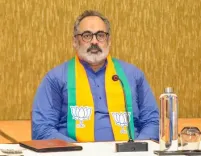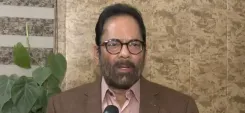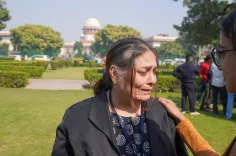Will UNESCO Intervene if Japan Fails to Honor Pledge on Forced Labor Sites?
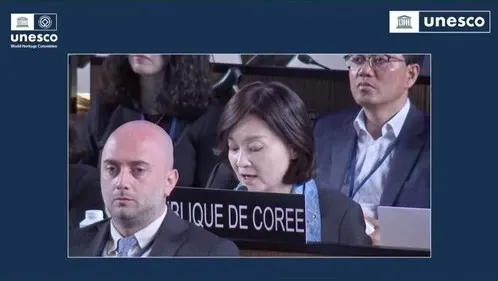
Synopsis
Key Takeaways
- South Korea urges UNESCO to intervene if Japan fails to uphold commitments regarding wartime labor recognition.
- The dispute highlights ongoing tensions between South Korea and Japan over historical narratives.
- The WHC's role is critical in ensuring accountability and historical accuracy.
- Japan's responses have been deemed insufficient by South Korea and UNESCO.
- Continued dialogue between South Korea and Japan is essential for resolution.
Seoul, July 15 (NationPress) - On Tuesday, South Korea urged UNESCO's heritage oversight committee to intervene if Japan fails to uphold its commitment to recognize the victims of wartime forced labor at its UNESCO World Heritage-listed industrial sites. South Korea's Ambassador to UNESCO, Bak Sang-mee, made this appeal during a session of the UNESCO World Heritage Committee (WHC) in Paris, following Seoul's unsuccessful attempt to place these industrial sites on this year's WHC agenda due to a rare vote among member states, including both South Korea and Japan.
Seoul aimed to highlight Japan's inadequate efforts in implementing WHC recommendations regarding the comprehensive portrayal of the Meiji industrial revolution sites, inscribed on the UNESCO World Heritage list in 2015, as reported by Yonhap news agency.
Hashima Island, one of these sites, is notorious for being a place where many Koreans were forced to labor during World War II, when Korea was under Japan's colonial rule from 1910 to 1945.
Bak remarked, "The case of Japan's Meiji industrial revolution sites is significant as the committee has consistently requested, through four consecutive decisions, the development of an interpretive strategy that allows for a complete understanding of each site's history. However, nearly a decade later, the implementation remains inadequate and raises ongoing concerns."
Though Japan has established a museum in Tokyo featuring related historical exhibits, this initiative has faced criticism from Seoul for not providing the complete historical context as initially promised.
Bak asserted that South Korea will persist in advocating for the full execution of the WHC decisions regarding these sites, including through bilateral dialogues with Japan. "We genuinely hope that Japan will participate in this process in a constructive and responsible manner," she stated.
However, she added that the WHC should act if Japan continues to neglect its commitments regarding WHC decisions. "If the issues with the interpretive strategies at the Tokyo Industrial Heritage Information Centre remain unresolved despite these bilateral efforts, the committee should sustain its engagement in this matter as part of its ongoing obligations," she emphasized.
Japan has submitted follow-up progress reports to UNESCO outlining its implementation actions, but each report has prompted the committee to insist that Tokyo do more to convey the complete history, reflecting South Korea's stance that Japan's efforts are inadequate compared to its initial commitments.
The WHC has reviewed these sites every two to three years since their UNESCO designation; however, this year, the issue was not included on the agenda, as Japan's most recent report, submitted in 2024, was merely an "update" to a prior implementation report, rather than a formal version that would automatically necessitate a review.


